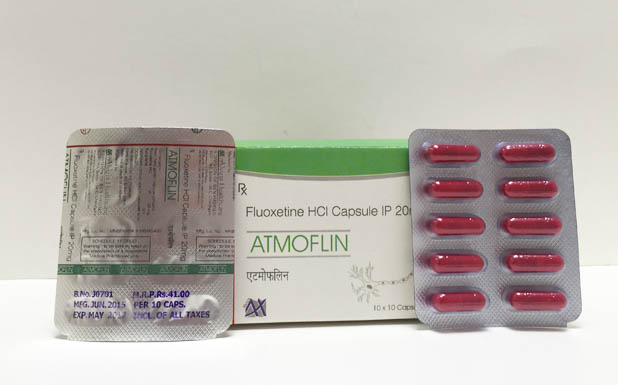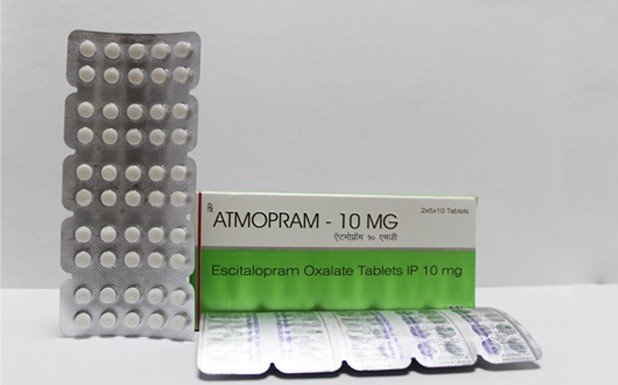Depression is often referred to as 'a mental condition characterized by feelings of severe despondency and dejection, typically also with feelings of inadequacy and guilt, often accompanied by lack of energy and disturbance of appetite and sleep'. As stated in the definition, depression deeply affects how you sense or feel certain things, imagine, and cope with daily situations, such as sleeping, eating, or working. To be diagnosed with depression, the symptoms must be present for at least two weeks.
Types of Depression
Some forms of depression are slightly different, or they may develop under exclusive circumstances, such as:
- Dysthymia is a depressed disposition that lasts for at least two years. A person diagnosed with constant depressive disorder may have episodes of major depression along with periods of fewer harsh symptoms, but symptoms must last for two years to be considered persistent depressive disorder
- Perinatal depression is much more serious than the "baby blues" (relatively mild depressive and anxiety symptoms that typically clear within two weeks after delivery) that many women experience after giving birth. Women with perinatal depression experience full-blown major depression during pregnancy or after delivery (postpartum depression). The feelings of extreme sadness, anxiety, and exhaustion that accompany perinatal depression may make it difficult for these new mothers to complete daily care activities for themselves and/or for their babies
- Psychotic depression occurs when a person has severe depression plus some form of psychosis, such as having disturbing false fixed beliefs (delusions) or hearing or seeing upsetting things that others cannot hear or see (hallucinations). The psychotic symptoms typically have a depressive "theme," such as delusions of guilt, poverty, or illness
- Seasonal affective disorder is characterized by the onset of depression during the winter months, when there is less natural sunlight. This depression generally lifts during spring and summer. Winter depression, typically accompanied by social withdrawal, increased sleep, and weight gain, predictably returns every year in seasonal affective disorder
- Bipolar disorder is different from depression, but it is included in this list because someone with bipolar disorder experiences episodes of extremely low moods that meet the criteria for major depression (called "bipolar depression"). But a person with bipolar disorder also experiences extreme high – euphoric or irritable moods called "mania" or a less severe form called "hypomania"
Signs of depression
If you have been experiencing some of the following signs and symptoms most of the day, nearly every day, for at least two weeks, you may be suffering from depression:
- Persistent, sad, anxious, or "empty" mood
- Feelings of hopelessness, or pessimism
- Irritability
- Feelings of guilt, worthlessness, or helplessness
- Loss of interest or pleasure in hobbies and activities
- Decreased energy or fatigue
- Moving or talking more slowly
- Feeling restless or having trouble sitting still
- Difficulty concentrating, remembering, or making decisions
- Difficulty sleeping, early-morning awakening, or oversleeping
- Appetite and/or weight changes
- Thoughts of death or suicide, or suicide attempts
- Aches or pains, headaches, cramps, or digestive problems without a clear physical cause and/or that do not ease even with treatment
Treatment of depression
Even the most rigorous cases of Depression, can be treated. The earlier that treatment can begin, the more effective it is. Depression is usually treated with medications, psychotherapy, or a combination of the two. If these treatments do not reduce symptoms, electroconvulsive therapy (ECT) and other brain stimulation therapies may be options to explore.
Not everyone is affected with the same type of depression. Similarly, there is not one treatment for everybody. It may take some examination and diagnose to find the treatment that works best for you.
Medications
Antidepressants are medicines which treat depression. They may help improve the way your brain uses certain chemicals that control mood or stress. Some good antidepressants by Alvizia Healthcare which can help you cure are-
ATMOFLIN CAPSULE
CompositionEach Capsule Contains:
Fluoxetine 20 mg
Packing
10x10(Blister)
MRP
Rs 41
Fluoxetine is a selective serotonin reuptake inhibitor (SSRI) antidepressant. Fluoxetine affects chemicals in the brain that may become unbalanced and cause depression, panic, anxiety, or obsessive-compulsive symptoms.
Fluoxetine is used to treat major depressive disorders, bulimia nervosa (an eating disorder) obsessive-compulsive disorder, panic disorder, and premenstrual dysphoric disorder (PMDD).
Fluoxetine is sometimes used together with another medication called olanzapine (Zyprexa). to treat depression caused by bipolar disorder (manic depression). This combination is also used to treat depression after at least 2 other medications have been tried without successful treatment of symptoms.
ATMOPRAM 10MG TABLET
CompositionEach Film Coated Tablet Contains:
Escitalopram Oxalate IP 10 mg
Packing
10x10(Blister)
MRP
Rs 65
Escitalopram is an oral drug that is used for treating depression and generalized anxiety disorder. Chemically, escitalopram is similar to citalopram (Celexa). Both are in a class of drugs called selective serotonin reuptake inhibitors (SSRIs), a class that also includes fluoxetine (Prozac), paroxetine (Paxil) and sertraline (Zoloft). SSRIs work by affecting neurotransmitters in the brain, the chemical messengers that nerves use to communicate with one another. Neurotransmitters are made and released by nerves and then travel to other nearby nerves where they attach to receptors on the nerves. Not all of the neurotransmitter that is released binds to receptors and, instead, is taken up by the nerves that produced them. This is referred to as "reuptake." Many experts believe that an imbalance of neurotransmitters is the cause of depression. Escitalopram prevents the reuptake of one neurotransmitter, serotonin, and an action which results in more serotonin in the brain to attach to receptors.
ATMOXIDE-H TABLET
CompositionEach Tablet Contains:
Amitriptyline 12.5 mg
Chlordiazepoxide 5 mg
Packing
10x10 (Alu-Strip)
MRP
Rs 22
Amitriptyline belongs to a group of medicines called tricyclic antidepressants. Serotonin and noradrenaline are neurotransmitter chemicals that relay signals between the cells in your brain. TCAs increase the amount of these two neurotransmitters in your brain, and this is how amitriptyline is thought to improve the symptoms of depression.
Chlordiazepoxide is used for the treatment of anxiety. It is a member of the benzodiazepine family of compounds, which slows the central nervous system in order to ease tension or nervousness.
Chlordiazepoxide is used for the short-term relief of symptoms of anxiety and management of anxiety disorders. It is also used for treating symptoms of withdrawal from acute alcoholism and alcoholic intoxication.

